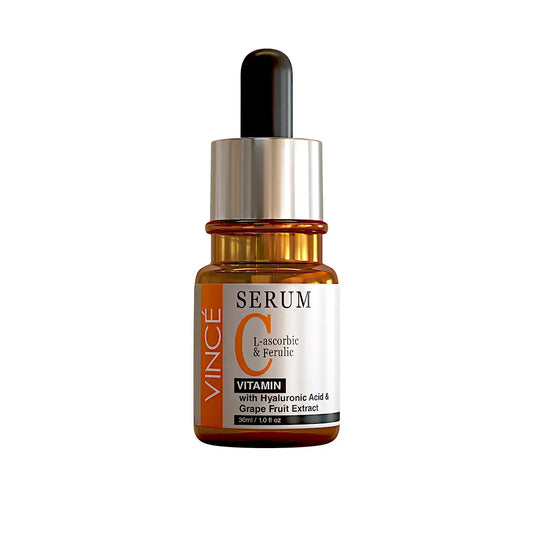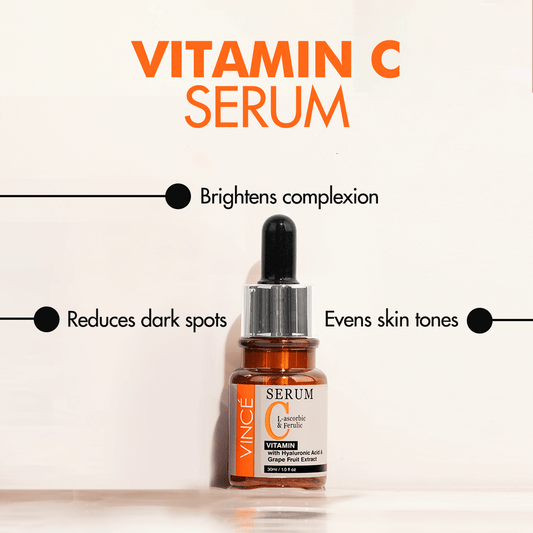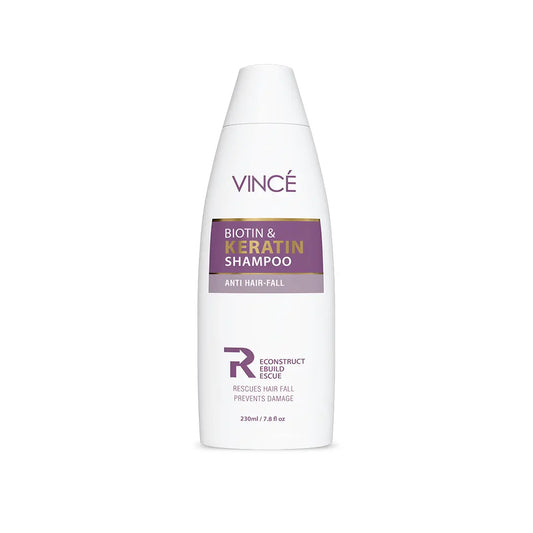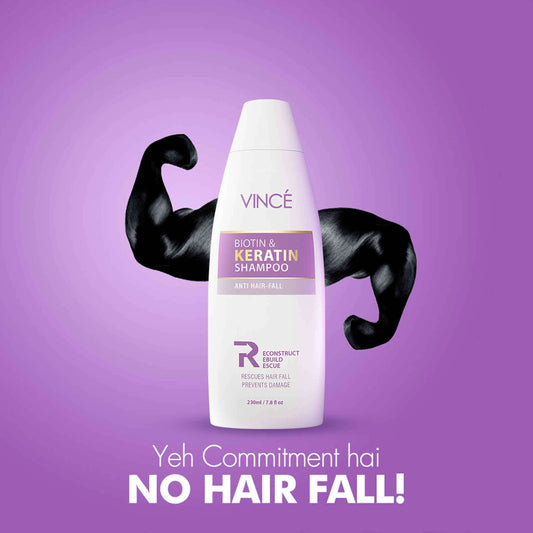Retinol vs. Retinoid: Key Insights for Effective Anti-Aging Skincare Solutions

We have grown up hearing the wonders of Vitamin A and Vitamin C. But the moment someone brings up Retinoid and Retinol, the conversation swiftly shifts to unfamiliar territory. You usually stumble upon these mysterious terms as you dive into the world of anti-aging skincare products.
In the beauty industry, these buzzwords consistently float around due to countless Retinoid benefits. Only a few ingredients are revered, like Retinoids, in the world of skincare, which is ever-evolving mercilessly. So, if these words ignite your curiosity and the difference between retinoid and retinol puzzles you, this article is for you. It comprehensively takes you from retinoid vs retinol for beginners to their side effects.
What is Retinoid?
Retinoid is a class of compounds derived from Vitamin A, sharing a structural and functional similarity with the vitamin itself. They all are widely celebrated for treating common skin concerns ranging from aging to acne. They come in various forms, including topical creams, gels, and liquids.

Almost all Anti-aging skincare routines include a product with a version of retinoid in its formulating ingredients. While all retinoids share the task of improving skin health, their strength and potency significantly differ.
Types of Retinoids
Prescription Retinoids:
These are more powerful retinoids available only on a dermatologist’s prescription. They are used to treat serious skin concerns, including severe acne such as cysts and skin affected by cancer.Over-the-Counter Retinoids:
These are the milder versions of retinoids, and you can purchase various skincare products, including serums, creams, and lotions. They are gentler than prescription retinoids, making them suitable for everyday use.Although they are mild formulations, their consistent application will yield exceptional results. These products are mainly effective in treating mild acne, hyperpigmentation, uneven skin tones, and early signs of aging, including wrinkles and fine lines.
Important Link: Benefits of Retinol Serum For Skin
Difference Between Retinoid and Retinol
Many people interchangeably use the terms Retinoid and Retinol, but there is a subtle difference between them. Retinol is a type of Retinoid, precisely a milder over-the-counter version. Its gentle formulation makes it slightly less potent than prescription retinoids, but this very quality makes it the first-choice retinoid treatment.

Retinol is less likely to irritate and is suitable for sensitive skin. For this reason, it is a part of multiple skincare products. It addresses various skin problems, including mild acne, wrinkles, uniform skin tone, and texture. However, as it is weaker than its retinoid counterparts, it takes noticeably longer to deliver results.
Primary Retinoid Benefits
Amidst the miraculous contributions to our skin, the following two retinoid benefits stand out as particularly significant:
1. Acne Treatment
Retinoids have a profound role in managing acne, and they help to treat acne-prone skin:
Blocked pores lead to blackheads and pimples. Retinoid helps by unclogging pores, controlling oil production, and exfoliating dead skin cells.
It addresses inflammation, which eases the acne symptoms.
Topical retinoid treatment halts any acne breakouts in the future by reducing swelling and inflammation
Retinoids accelerate cell turnover and the growth of new skin cells, smoothing the outer skin layer, treating acne scars, and promoting even skin texture.
Retinoid improves the skin's reception, and better absorption helps you maximize the benefits of other skincare products.
Retinoid vs Retinol For Acne
Different types of retinol help treat acne, but their effectiveness varies based on the severity of the condition. Retinol works exceptionally well to manage the symptoms of mild acne.
So, incorporating Vince’s 0.2% retinol-infused Night serum in your routine is a great choice, considering its gentle formulation is safe for daily application and favors all skin types equally. Meanwhile, other prescription retinoids are powerful enough to treat severe acne conditions like large and painful cysts and nodules.

2. Wrinkles Treatment
Anti-aging skincare asks for ingredients like Retinoids for the following reasons:
- Collagen production boost
Collagen and elastin increase the skin’s elasticity and help tighten it by promoting skin thickening. And Retinoid contributes to boosting the production of both.
- Skin Renewal
Skin cell turnover slows down as we age. Retinoids accelerate the production of new cells, assisting to keep skin smooth and healthy. It contributes to youthful skin and clears the surface skin of any wrinkles and fine lines.
- Treats Hyperpigmentation
Retinoid helps fade the age spots and hyperpigmentation concerns and promotes smooth skin tone and complexion.
Retinoid vs Retinol For Wrinkles
Retinol is the go-to first choice for individuals new to Anti-aging skincare. Talking about the difference between retinoid and retinol, deep wrinkles and fine lines require the potency of retinoids, which are highly effective for significant wrinkle reduction.
Important Link: Retinol Serums for All Skin
Retinoid vs Retinol For Beginners
The exact answer to choosing retinoid or retinol depends on your skin type and the severity of the issue you seek treatment for. People with dry and sensitive skin should prefer retinol as the ingredients are less irritating and drying and are usually combined with other hydrating agents for smoothening effects.
Start the product 2-3 days a week and then increase the frequency. But remember, retinol demands patience, as it takes a few weeks to treat your skin.
The best approach is to start with less potent retinol, allowing your skin to adjust, then gradually switch to higher-concentration retinoids if necessary.
Retinoid vs Retinol Side Effects
Topical Retinoids are generally safe for all skin types. However, individuals with dry and sensitive skin or skin allergies should take a slow start with retinol. One can experience one of the following side effects:
- Skin irritation, peeling and redness
- Dryness and flaking
- Acne breakout
- Burning sensation and increased sun sensitivity
The higher the potency of the retinoid, the greater the chances of experiencing any potential side effects, making retinol the safest bet. But, these side effects can be due to over-aggressive skincare routine or product overuse. Avoid the sun after using retinoids to minimize irritation, as they are light-sensitive. Use them as a part of your nighttime routine after cleansing the face.
Conclusion
Retinoids and retinol, derived from Vitamin A, are valuable assets in a skincare routine. Understanding the difference between retinoid and retinol is significant for perfecting acne and anti-aging skincare. Retinoids benefits come with a power punch that delivers swift and intense results. Retinol, a milder OTC retinoid, takes a gentle, less aggressive approach toward clear skin.
In the debate of Retinoid vs retinol for wrinkles or acne, a well-informed choice and starting with low potency will help minimize potential side effects and pave the way to a youthful appearance and healthy skin.
Important Link: Vitamin C Serum vs Retinol: Which is Better?
Frequently Asked Question (FAQs)
Q1. Is retinol or retinoid good for acne?
Yes, both retinoid and retinol treat different types of acne by preventing clogging of the pores and promoting cell turnover. They also contribute to clearer skin by reducing inflammation, oil production, and exfoliating dead cells. For mild acne and sensitive or dry skin, retinol is the preferred choice.
Q2. What is the difference between retinoid and retinol?
Retinol is a type of retinoid derived from Vitamin A but differs based on its concentration and efficiency. Retinoids are more potent and treat intense acne and severe wrinkles while retinol is a milder over-the-counter Retinoid, less likely to cause skin irritation or side effects but comparatively slower in delivering results.
Q3. Which is better for anti-aging: retinoid or retinol?
For Anti-aging skincare routines, retinoid benefits are superior to retinol as they deliver better results by working quicker. Retinoid contains a higher concentration formulation, and their structure promotes collagen production and faster cell turnover. Retinol for wrinkles provides optimal results gradually at a comparably slower pace, but it's suitable for all skin types.
Q4. Can I use retinoid or retinol if I have sensitive skin?
In the case of sensitive skin, you can opt for retinol and retinoid, though choosing the right type and concentration is the key. Start your retinoid journey with a lower retinol dosage, like Vince’s 0.2% Retinol serum. Once your skin adjusts, you can switch to more potent retinoids if required.
Q5. Is retinol safer than retinoid?
In the discussion on retinoid vs retinol for beginners, retinol has an edge, considering its milder formulation. Especially for sensitive and dry skin, retinol is less likely to trigger reactions, including skin peeling, redness, and irritation. A thorough understanding of the difference between retinoid and retinol will help you make a more informed decision based on your skin type and needs.




